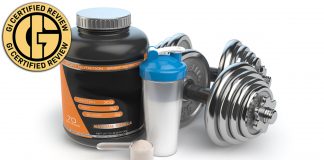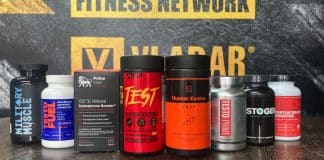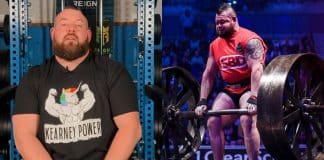
The correlation between sleeping and muscle growth
So you spend hours in the gym, pushing heavy weight, doing your cardio, you eat super clean, while focusing on your diet and making sure to get in all your protein and aminos but the gains don’t seem to be coming the way you want them to. Could the lack of muscle growth be a sleep related problem?
Overview
The answer could be as simple as getting enough shut eye. As when you exercise, tiny tears develop in your muscle fibers but muscle repair only occurs when the body is going through a proper rest and recovery phase, which involves getting the proper amount of sleep, and if you aren’t getting an adequate amount of sleep, your body cannot repair the muscle fibers as insufficient sleep is disruptive.
How Many Hours of Sleep Should You Get?
One Chinese study concluded that ‘there was a positive association between sleep quality and muscle strength. And men with shorter sleep duration(s), of (6 hours), had poorer muscle strength than that of men who slept for 7-8 hours’ and over’.
The study goes on to say that ‘good sleep quality is associated with greater muscle strength, while shorter sleep duration may be a risk factor for decreased muscle strength.
What Happens While You are Sleeping?
Believe it or not, sleep dramatically impacts your entire body, and it’s during sleep that your body recovers from exercise, repairs itself and grows new muscle tissue.
During this time your muscles also are able to relax, and this is when your muscles are relieved of the pain and tension that you put them through during a workout.
When you are sleeping hormones such as testosterone and human growth hormone (HGH), and even effects cortisol levels, which are produced in higher doses than throughout the rest of the day.
Testosterone
Testosterone is a hormone which aids how much muscle your body can build, as well as other bodily functions like regulating sex drive and even keeping body fat off, and sleep is vital for helping to produce this hormone.
A 2011 study from the Journal of the American Medical Association found that ‘cutting back on sleep, may have a dramatic effect on men’s testosterone levels’.
The ‘study shows a week of sleep loss lowered testosterone levels by up to 15%’. And, that skipping sleep is the equivalent to aging by that of 10-16 years.
And, Eve Van Caulter, director of the study, goes on to say that, ‘low testosterone levels are associated with reduced well being and vigour, which may also occur as a consequence of sleep loss’.
The study also found that 15% of the US adult working population were getting less than 5 hours of sleep a night, and for those wanting to add on quality muscle, that is nowhere near enough sleep.
Growth Hormone
Human Growth Hormone is also produced while we are sleeping, and this is greatly enhanced early in the night, specifically the first few hours of sleep.
And it has been concluded that ‘in adults the most reproducible pulse of growth hormone secretion occurs shortly after the onset of sleep in association with the first phase of slow- wave sleep (also referred to as SWS), and in men approximately 70% of the GH pulses during sleep coincide with SWS.’
So the first few hours of sleep are crucial as Growth Hormone is vital to the body being able to form and sustain muscle mass.
Cortisol
Cortisol is known as being the stress hormone but it plays so many other roles, and one of those is that it helps control your sleep wake cycle.
It stimulates wakefulness in the morning, which continues throughout the day, and slowly dips as the day goes on, coming to its lowest point around midnight, where melatonin and other hormones rise up in its place to bring about sleep.
Cortisol is the hormone that assists in the breaking down of muscle protein (catabolism), and in excess this catabolic hormone can decrease muscle mass and lean body mass.
What Can Help Stop Muscle Breakdown?
When you are sleeping you are essentially fasting as your body is not consuming any calories during that period and this is catabolic to muscle growth.
One study recommended ‘ingesting 40g of dietary protein prior to sleep to elicit a robust stimulation of muscle protein synthesis rates throughout the night’.
Another study stated that casein protein ingested ‘before sleep increased the ‘whole body protein synthesis rates and improved net protein balance’ and this is the ‘first study to show that protein ingested immediately before sleep is effectively digested and absorbed’.
So to increase the gains chug a casein shake to ensure you don’t waste away during your sleep.
Supplements to Help You Sleep
There are a few different supplements that can help you sleep, so let’s take a look.
ZMA – is a supplement made from zinc, magnesium and vitamin B6. If you are zinc deficient then this supplement can boost testosterone levels, but it also helps induce sleep.
Supplements to Increase Anabolic Potential
Glutamine- is an amino acid that prevents catabolism, promotes optimum growth hormone release and supports a strong immune system.
During sleeping periods, muscle wasting can occur due to amino acid shortage, and this can result in increased cortisol secretions and inflammation. Glutamine helps maintain a positive nitrogen balance and helps to promote repair.
BCAA’s – Branched Chain Amino Acids – have proven anabolic properties and increase testosterone and growth hormone levels.
BCAA’s can also help to blunt the rise in cortisol levels during sleep, helping to prevent catabolism and promote maximum anabolism.
Wrap Up
So there you have it, sleep is essential for muscle growth. So, make sure you get in a solid 8 hours of shut eye, and supplement accordingly to ensure all that hard work in the gym doesn’t go to waste – literally!
So until next time, keep pumping!
For more news and updates, follow Generation Iron on Facebook, Twitter, and Instagram.
References
https://www.ncbi.nlm.nih.gov/pmc/articles/PMC7785053/
https://www.ncbi.nlm.nih.gov/pmc/articles/PMC5749041/
https://www.ncbi.nlm.nih.gov/pmc/articles/PMC4445839/
https://pubmed.ncbi.nlm.nih.gov/29199194/
https://www.ncbi.nlm.nih.gov/pmc/articles/PMC1188300/
https://pubmed.ncbi.nlm.nih.gov/5675428/
https://www.ncbi.nlm.nih.gov/pmc/articles/PMC297368/
https://www.ncbi.nlm.nih.gov/pmc/articles/PMC7830980/
https://www.ncbi.nlm.nih.gov/pmc/articles/PMC4315033/
https://pubmed.ncbi.nlm.nih.gov/2307119/



















